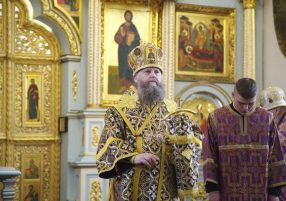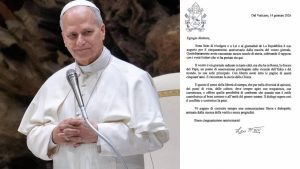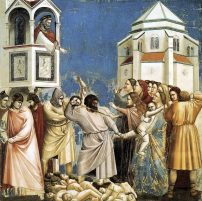The Mission of the Christian Vision Group in the Current Political Crisis in Belarus
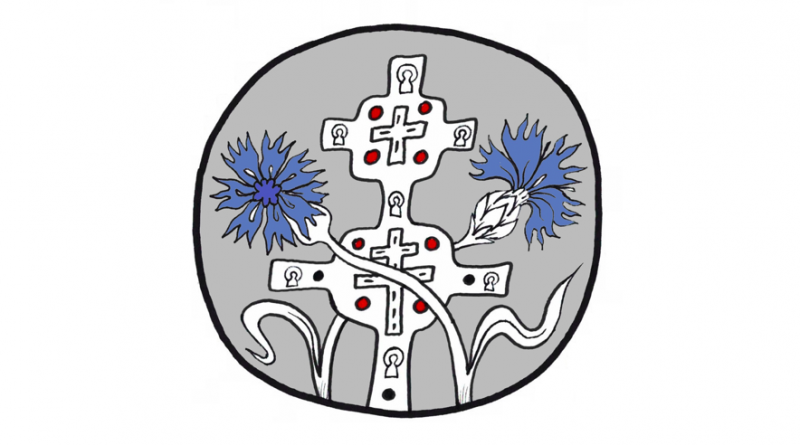
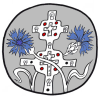
Арганізацыя"Хрысціянская візія"
Міжканфесійнае аб’яднанне беларускіх хрысціян, створанае на хвалі мірных пратэстаў 2020 г.
Інфармацыя пра «Хрысціянскую візію» Аб'ява аб заснаванні групы Місія групы Іншыя артыкулы


The Social and Political Context
Since the presidential elections in August 2020, Belarusian society has existed in a state of deep political, economic, and social crisis. Despite the unprecedented engagement of citizens in peaceful protests across the country, the democratic movement which started forming in spring 2020, shortly before the elections, has a weak institutional basis. Due to persecution, many leaders of the democratic movement were imprisoned or forced to leave the country; the number of persecuted is increasing constantly. Currently, there are over a thousand political prisoners. Many more are under threat of criminal persecution, searches, confiscation of mobile phones and computers, as well as arbitrary administrative arrests and dismissals. Activists and ordinary citizens suspected in support of the democratic movement are humiliated, insulted by the state-owned media, and even calumniate themselves on camera.
The legal registration of many NGOs has been withdrawn, and pressure is applied on the unregistered – and those that lost their registration – parties and organisations.
Many independent media have been forced to close or branded as extremist. The space for the legal and open operations of the democratic movement is shrinking rapidly. The state of lawlessness has enabled the state to persecute anyone without a real legal basis. The accused are frequently denied legal assistance and forced to sign a non-disclosure agreement preventing them from revealing even the article of the law incriminated to them. Court proceedings for administrative prosecutions routinely take place over Skype at a short notice, or in closed court sessions – for criminal prosecutions; anonymous police witnesses are admitted. Rapid revocation of licences of the advocates during the investigation of their clients has become a usual practice. Churches, religious communities, religious leaders, ministers and activists are also under threat. Many NGOs, churches and individuals had to delete the content related to the democratic movement from their websites and social networks to avoid persecution and to protect themselves and others. Those who participate in the democratic movement in Belarus have to do it secretly, therefore the public role of the people in exile is growing.
Why Churches Are Not Able to Act as a Platform for Dialogue and Agents for Democratisation
The core problem is that the authoritarian regime avoids dialogue with the society regarding democratic transit; it rather uses repressions to suppress the democratic movement. In this context, church leadership maintains active or at least passive loyalty to the authoritarian regime. This can be explained by three factors: their own genuine undemocratic political convictions; fear of repressions and intimidations forces them to follow or at least not to oppose the regime’s ideologems; regime’s manipulations and instrumentalisation of churches, for example, presenting itself as a defender of the traditional family or of the canonical territory of the Orthodox church, while portraying its opponents as promoters of the so-called “gender ideology” and autocephaly.
Consequently, church leaders and their entourage produce a specific theopolitical discourse, which includes the following ideas:
1) requirement of the church to avoid any engagement into politics but commit exclusively to private spirituality;
2) prioritisation of peace over justice (which makes it “peace without justice”);
3) prioritisation of stability over democracy and obedience – over freedom;
4) artificial opposition between the family values and personal freedom where the priority is ascribed to the “traditional family values”;
5) absolutisation of the principle of hierarchy based on the vertical obedience to church leadership with no dialogue and feedback with the church community and theology.
Even if church leaders have the intention and motivation to act in a more balanced manner or to react to certain situations, they may be prevented by a lack of the good-quality expert perspective to see manipulations through or quickly produce well-argued reactions to particular events.
On the other hand, those in churches who have a democratic orientation and who value human rights and justice, are under dual pressure – both from the state and church leadership. They are not well-organised nor connected to act collectively, nor they are often equipped with theological knowledge and a political and social experience to fill the lacune created by the hierarchy’s passivity and destructive work and to offer a more authentic, solid, trustworthy, and attractive approach.
At the same time, the democratic movement often fails to communicate its message to the people of faith in a meaningful way. This weakens churches’ public response and contribution to the process of democratisation and leads to the decrease of trust towards the democratic movement among believers, as well as churches’ subsequent marginalisation among the people who share democratic values. The democratic movement at large is mainly ignorant of the situation of churches (their standpoints, strengths. as well as limitations) and therefore, on the one hand, it does not understand churches’ ability to make a significant contribution to the process of democratisation; on the other hand, it has unrealistic, exaggerated expectations.
How to Solve the Problem: Christian Vision’s Mission
In order for Christians and churches to become a prophetic voice in the society and to contribute to the democratic process, restoration of the rule of law, justice and genuine peace, as well as to facilitate national dialogue and understanding, several directions of work should be undertaken.
1. Cultivating the churches’ potential as strong and independent of the state participants in the civil society; encouraging the growth of democratic convictions among Christians, facilitating and advancing the laity’s participation, including women, in forming the churches’ public discourse and activities in the public sphere.
2. “Translating” the ideas of democracy, human rights, justice, peace etc. into the theological and ecclesiastical discourse through interpretation of sacred texts (the Holy Scripture; works of the Fathers, hagiography, liturgical poetry), advocating for the Christian essence of those ideas and promoting them in church communities. Developing a democracy- and human rights-oriented socially sensitive theological discourse helping those Christians who intuitively already share those convictions to develop informed arguments and promote them in their own communities and acquaintances. This will also serve as a basis for convincing other Christians who resist those ideas due to the previously internalised doctrinal attitudes or due to ignorance; they will be able to discover the Christian roots of the ideas of democracy and human rights, and embrace them as authentically Christian and unalienable from the faith in Christ. Finally, this will motivate all Christians to act in defence of human dignity and justice in the public sphere.
3. Equipping the pro-democracy church leaders, ordained ministers and laity with theological knowledge for communicating their alternative position to the church leadership supporting the regime; and to compensate the deficit of the public pro-democracy position of churches. Also, strengthening the collaboration and public visibility of pro-democracy believers.
4. Promoting the visibility of Christians and Christian pro-democracy ideas in the democratic movement and the society at large; advancing Christian ideas and freedom of religion or belief.
5. Communicating to the church leadership supporting the regime that there is a substantial number of people with democratic convictions and well-developed theological position who could not be ignored in their churches. Evaluating the regime’s manipulations which are aimed at instrumentalising churches in disregard of their own values and interests.
6. Equipping the democratic movement with expertise for better communication with churches and Christian communities; at the same time, advocating for a critical approach to the activities and the ideas of the democratic movement and its leaders if their actions deviate from Christian values and ideas, Christian understanding of human dignity, justice, peace, democracy, inclusivity. Promoting the Christian social teaching.
7. Analysing the current situation and interpreting the acts of the regime which contradict Christian values and the interests of churches; developing strategies and evaluating risks.
8. In case of persecutions, monitoring all incidents, documenting them, making them visible and supporting victims; promoting solidarity.
Target Groups of the Christian Vision
1. We promote the Christian Vision’s programme among Christians and churches. We engage them and build a strong reputation among them. We co-opt more participants to the group and its activities, and to the democratic movement at large.
2. We support and express solidarity with those active laity and clergy who participate in the democratic movement and face persecutions and repressions both in their religious communities and from the regime.
3. We raise the awareness of of Christians’ activities for peace, justice and freedom in Belarus among the participants of the democratic movement.
4. We inform church leaders about the processes taking place in their communities and encourage their support of the values of non-violence, respect for dignity and inalienable human rights, inclusive public dialogue, democratic principles of governance in society, democracy, justice and freedom. We defend priests and church workers from intimidation and repressions for their convictions.
5. We inform the international ecumenical community about the situation in Belarus and request its solidarity and political lobbying where it is appropriate.
6. We offer expertise to various institutions of the democratic movement, such as the Office of Sviatlana Tsikhanouskaya and Coordination Council. We promote theologians and competent Christians to working groups and processes of those institutions in order to advance our vision and concepts of constitutional order and legislation, and facilitate the dialogue between those institutions and religious communities.
7. We aim to provide spiritual assistance and support to political prisoners and their families.




